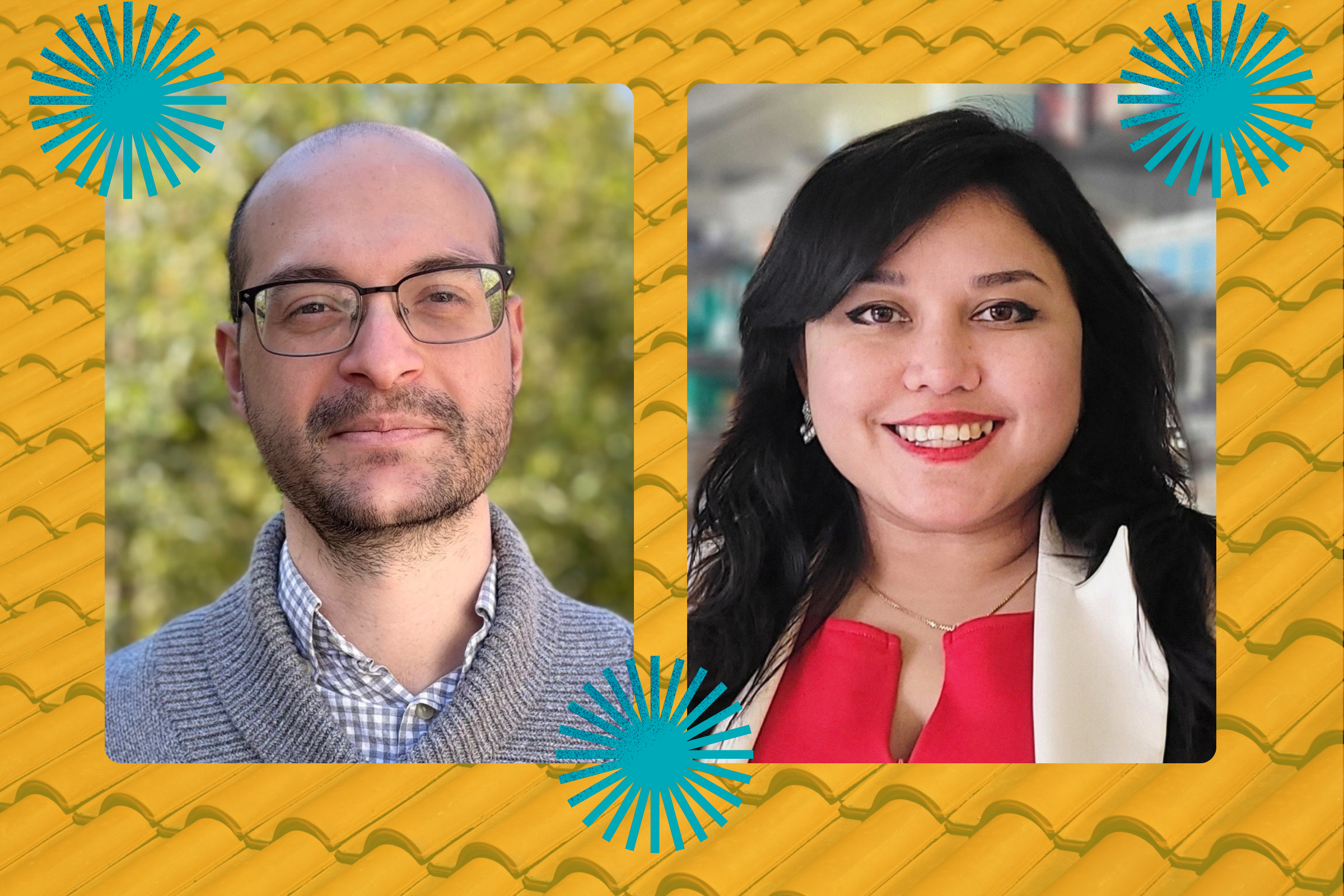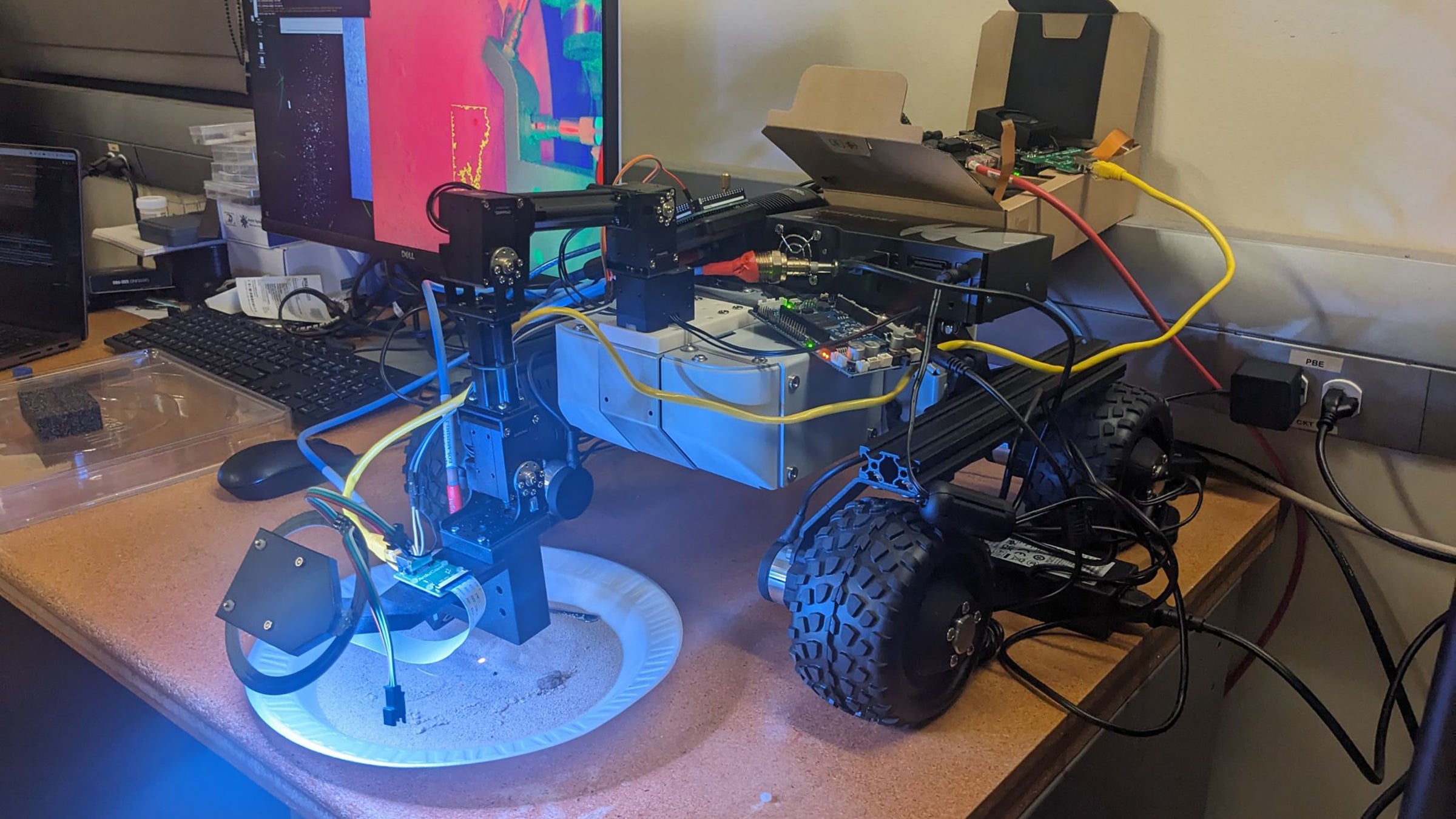Four Natural Sciences Faculty Receive Sloan Research Fellowships
Carlos Baiz, Caroline Morley, Andrew Potter and Urbain Weyemi are among the 128 scholars from across the country selected by the Alfred P. Sloan Foundation to receive the 2021 Sloan Research Fellowships.

Four faculty members from the University of Texas at Austin's College of Natural Sciences have received 2021 Sloan Research Fellowships, which honor outstanding early-career scientists in eight fields.
Carlos Baiz, Caroline Morley, Andrew Potter and Urbain Weyemi are among the 128 scholars from across the country selected by the Alfred P. Sloan Foundation to receive this award.
Since the first Sloan Research Fellowships were awarded in 1955, 96 faculty from UT Austin have received a fellowship.
Baiz, assistant professor of chemistry, received a 2019 Faculty Early Career Development (CAREER) Award from the National Science Foundation. This award funded his research to study how biomolecules inside cells interact with each other and with the water surrounding them. One goal of the work is to find better ways to preserve human organs for transplant. He also received an NIH Outstanding Investigator Award in 2019 and was named a 2020 Cottrell Scholar by the Research Corporation for Science Advancement.
Morley joined the Department of Astronomy as an assistant professor in 2018. Her research focuses on understanding the properties of planets orbiting stars other than the Sun, known as exoplanets. In 2020, she received the American Astronomical Society's Annie Jump Cannon Award in Astronomy. In an interview on the Point of Discovery podcast, she discussed the possibility of finding alien life, a topic she will also cover at this year's Texas Science Festival.
Potter, an assistant professor in the Department of Physics, focuses on understanding the electronic, magnetic and optical properties of materials at a quantum level, and how to control and manipulate quantum systems. Potter was part of a team that successfully built the world's first "time crystal," an exotic phase of matter in which atoms move in a pattern that repeats in time rather than in space. In 2017, he received an NSF CAREER Award.
Weyemi joined the Department of Molecular Biosciences as a Cancer Prevention and Research Institute of Texas Scholar in Cancer Biology in 2019. He researches at the intersection of cancer biology, neurodegeneration and epigenetics, focusing on how damage to human DNA leads to cancer and other diseases. He is also a member of the LiveStrong Cancer Institutes at Dell Medical School. Learn more about Weyemi and his work in our recent Q&A.
"A Sloan Research Fellow is a rising star, plain and simple," said Adam F. Falk, president of the Alfred P. Sloan Foundation. "To receive a Fellowship is to be told by the scientific community that your achievements as a young scholar are already driving the research frontier."
Each recipient will receive a two-year, $75,000 fellowship to further their research.



